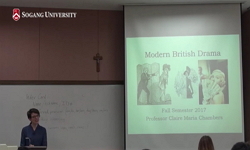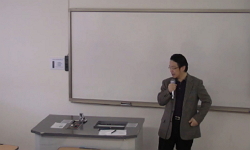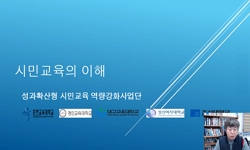인성교육은 너무나 다양한 정의를 허용하는 열린 개념이다. 그래서 각 시대마다 인성교육의 성격과 내용은 다르게 이해되었다. 심지어 누군가에게는 인성교육이 누군가에게는 반인성교육...
http://chineseinput.net/에서 pinyin(병음)방식으로 중국어를 변환할 수 있습니다.
변환된 중국어를 복사하여 사용하시면 됩니다.
- 中文 을 입력하시려면 zhongwen을 입력하시고 space를누르시면됩니다.
- 北京 을 입력하시려면 beijing을 입력하시고 space를 누르시면 됩니다.
https://www.riss.kr/link?id=A102875934
- 저자
- 발행기관
- 학술지명
- 권호사항
-
발행연도
2017
-
작성언어
Korean
-
주제어
배려윤리 ; 시민교육 ; 인성교육 ; 포스트모던 사회 ; 모더니즘 ; care ethics ; citizenship education ; character education ; modernism ; postmodern society
-
등재정보
KCI등재
-
자료형태
학술저널
- 발행기관 URL
-
수록면
55-82(28쪽)
- 제공처
-
0
상세조회 -
0
다운로드
부가정보
국문 초록 (Abstract)
이에 본 논문은 오늘날의 인성교육은 포스트모던 가치에 기반을 둔 ‘배려윤리’와 ‘시민교육’의 통합적 교육을 강조한다. 배려윤리와 시민교육은 각각 배려와 정의를 가장 중요한 핵심 가치로 추구한다. 새는 좌우의 날개로 날 수 있듯이, 포스트모던 시대 우리 사회를 이끌어가야 할 핵심 가치와 덕목은 배려와 정의라고 말할 수 있다. 따라서 포스트모던 시대 인성교육은 이 배려와 정의를 조화롭게 추구하게끔 도와주는 교육이 되어야 한다. 포스트모던 시대의 인성교육은 그 교수법에서도 포스트모던한 여러 가치에 기초해야 할 것이다.
인성교육은 너무나 다양한 정의를 허용하는 열린 개념이다. 그래서 각 시대마다 인성교육의 성격과 내용은 다르게 이해되었다. 심지어 누군가에게는 인성교육이 누군가에게는 반인성교육이라는 비판이 제기될 정도로 논쟁적 해석이 주어진다. 그렇다면 오늘날의 인성교육은 어떤 교육이어야 하며 그 교육 방향은 어떻게 정해져야 할 것인가? 우선 학생들이 살아가야 할 사회는 포스트모던 사회의 특징을 더 강하게 지니게 된다는 점에서 인성교육은 포스트모던 시대의 핵심 가치를 중심으로 그 방향을 정립할 필요가 있다. 우선 포스트모더니스트들은 모던주의의 획일주의에 반대해서 교육에 있어 ‘차이와 다름에 대한 긍정’과 ‘다양성의 긍정’을 강조한다. 그리고 이성 중심주의에 반대해 ‘욕망과 감정에 대한 긍정’을, 권위주의에 반대해 ‘자율성 긍정’과 ‘반권위주의’를 내세운다. 또한, 교육에 있어 ‘대화’와 ‘배려’의 중시를, 인간중심주의를 반대해 ‘탈인간중심주의’를, 개인주의에 반대해 ‘연대의 긍정’을, 거대한 이야기에 반대해 ‘작은 이야기에 대한 긍정’을 강조하고 있다. 포스트모더니스트들이 추구하는 이런 가치는 포스트모던 사회의 인성교육이 지향해야 할 방향이자 구체적 교육방법론 정립에 있어 큰 시사점을 준다.
이에 본 논문은 오늘날의 인성교육은 포스트모던 가치에 기반을 둔 ‘배려윤리’와 ‘시민교육’의 통합적 교육을 강조한다. 배려윤리와 시민교육은 각각 배려와 정의를 가장 중요한 핵심 가치로 추구한다. 새는 좌우의 날개로 날 수 있듯이, 포스트모던 시대 우리 사회를 이끌어가야 할 핵심 가치와 덕목은 배려와 정의라고 말할 수 있다. 따라서 포스트모던 시대 인성교육은 이 배려와 정의를 조화롭게 추구하게끔 도와주는 교육이 되어야 한다. 포스트모던 시대의 인성교육은 그 교수법에서도 포스트모던한 여러 가치에 기초해야 할 것이다.
다국어 초록 (Multilingual Abstract)
At this, the present thesis emphasizes the integrative education of ‘care ethics’ and ‘citizenship education’ based on postmodern values for the character education of today. Care ethics and citizenship education respectively pursue care and justice as the most important core values. Just as a bird can fly with wings on its left and right side, it can be said that the core values and virtues that we must have to lead our society in a postmodern society are care and justice. Therefore, character education in a postmodern age must be education that aids the harmonious pursuit of such care and justice. The character education of a postmodern age must be based on the various postmodern values even in its teaching methods.
Character education is an open concept that allows so many diverse definitions. Because of this, the nature and contents of character education have been understood differently in each era. Then what kind of education does today’s character educatio...
Character education is an open concept that allows so many diverse definitions. Because of this, the nature and contents of character education have been understood differently in each era. Then what kind of education does today’s character education have to be and how is the direction of such education to be determined? First of all, based on the fact that the society that students must live in strongly has the characteristics of a postmodern society, character education must establish its direction focused on the core values of a postmodern society. These values pursued by postmodernists are the direction that must be aimed for by the character education of a postmodern society and they provide great implications in the establishment of a concrete educational methodology.
At this, the present thesis emphasizes the integrative education of ‘care ethics’ and ‘citizenship education’ based on postmodern values for the character education of today. Care ethics and citizenship education respectively pursue care and justice as the most important core values. Just as a bird can fly with wings on its left and right side, it can be said that the core values and virtues that we must have to lead our society in a postmodern society are care and justice. Therefore, character education in a postmodern age must be education that aids the harmonious pursuit of such care and justice. The character education of a postmodern age must be based on the various postmodern values even in its teaching methods.
목차 (Table of Contents)
- 한글요약
- Ⅰ. 들어가는 말
- Ⅱ. 인성, 인성교육이란?
- Ⅲ. 포스트모더니즘과 포스트모던 시대의 인성교육
- Ⅳ. 포스트모던 시대의 배려윤리를 통한 인성교육
- 한글요약
- Ⅰ. 들어가는 말
- Ⅱ. 인성, 인성교육이란?
- Ⅲ. 포스트모더니즘과 포스트모던 시대의 인성교육
- Ⅳ. 포스트모던 시대의 배려윤리를 통한 인성교육
- Ⅴ. 포스트모던 시대의 시민교육을 통한 인성교육
- Ⅵ. 맺음말
- 참고문헌
- Abstract
동일학술지(권/호) 다른 논문
-
롤즈의 자존감과 자존감의 사회적 토대의 역할과 의미에 대한 비판적 고찰
- 새한철학회
- 목광수(Mok, Kwang-Su)
- 2017
- KCI등재
-
- 새한철학회
- 박만준(Park, Man-Joon)
- 2017
- KCI등재
-
- 새한철학회
- 배상식(Bae, Sang-Sik)
- 2017
- KCI등재
-
- 새한철학회
- 배성민(Bae, Sung-Min)
- 2017
- KCI등재






 DBpia
DBpia






